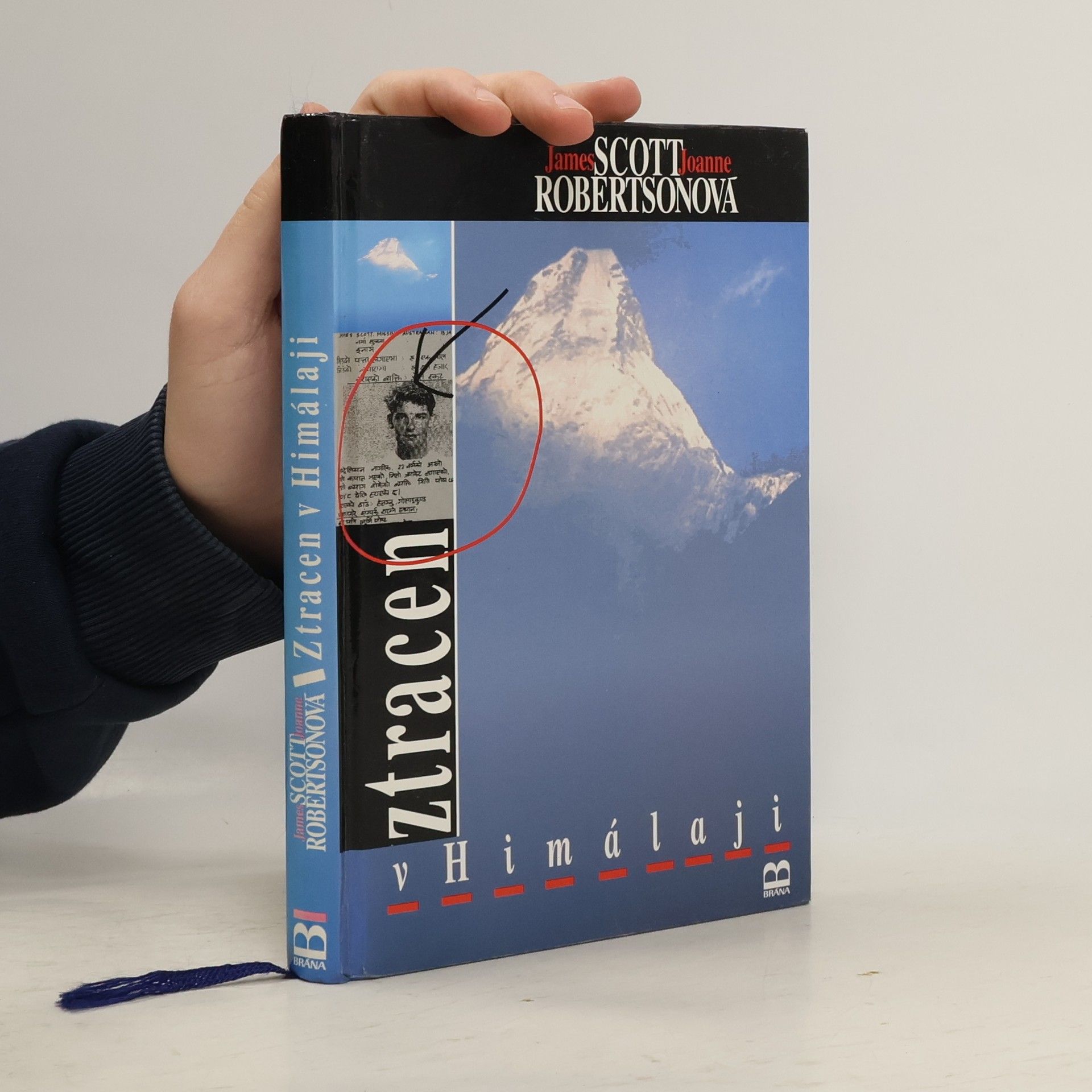Ztracen v Himaláji
- 240 stránok
- 9 hodin čítania
James A. Scott sa venuje skúmaniu zložitých historických tém s napínavým prístupom, ktorý čitateľa vtiahne do centra diania. Jeho romány, ovplyvnené rozsiahlym cestovaním po celom svete, ponúkajú prenikavý pohľad na rôzne kultúry a udalosti. S bohatými skúsenosťami z vojenskej služby Scott vnáša do svojho písania autentickosť a hĺbku, čím jeho príbehy získavajú na sile. Jeho diela sú svedectvom jeho schopnosti prepojiť historické udalosti s pútavým rozprávaním.







Kniha Dvakrát sláva anarchismu, inspirována základním anarchistickým přesvědčením v možnosti dobrovolné spolupráce bez hierarchie, je poutavou, odvážnou a často velmi zábavnou obranou anarchistického nahlížení na svět. Antropolog James C. Scott si v této knize nasazuje „anarchistické brýle“ a skrze ně se dívá na svět kolem sebe: počínaje každodenními interakcemi mezi lidmi a konče velkými protesty a revolucemi. Na celé řadě nezapomenutelných příkladů popisuje anarchistickou citlivost, která oslavuje místní znalosti, uvažování a kreativitu obyčejných lidí. Výsledkem je jakási příručka konstruktivního anarchismu, která nás vybízí k tomu, abychom přehodnotili hierarchie ve veřejném a soukromém životě. Jakmile si se Scottem nasadíte anarchistické brýle a pustíte se do čtení, pravděpodobně již nic nebude jako dřív. České vydání je doplněné rozsáhlou studií antropologa Boba Kuříka, který Scottovo dílo přibližuje v širších souvislostech jeho celoživotního antropologického bádání, stejně jako urgentních politických výzev dneška.
V zimě roku 1897 se porodní bába Elspeth Howellová vrací domů na odlehlou farmu. Místo přivítání však nachází brutálně zavražděného manžela a své čtyři děti. Jediným přeživším je dvanáctiletý Caleb, který kromě rodné farmy nic jiného nezná. Matka a syn se rozhodnou rodinu pomstít a vydají se zamrzlou divočinou po stopách vrahů do městečka u jezera Erie. Zatímco Caleb odhaluje děsivou pravdu o své rodině, Elspeth musí čelit dávným tajemstvím.
Scripture paints a vivid picture of God as gardener and cultivator. This book introduces this imagery to readers ages 5-10 in a lyrical, engaging style to help them understand the story of redemption and see God's creative work in the world.
Set in Southern California during the Golden Age of Aviation, the story follows fifteen-year-old Shannon Donnelly, an orphan on the run from her parents' killers. Inspired by Amelia Earhart, she pursues her dream of flying amidst the glamour of 1930s Hollywood. As she navigates air races and the challenges of the Great Depression, Shannon finds herself in a love triangle and faces a deadly adversary, leading to a thrilling rescue mission in Nazi-occupied France. This fast-paced adventure captures the spirit of the era with romance and danger.
How Artificial Intelligence Works and How We Can Harness Its Power for a Better World
These machines, from smart phones to talking robots to self-driving cars, are remaking the world in the twenty first century in the same way that the Industrial Revolution remade the world in the nineteenth.
A Russian defector, a worldwide dragnet, and a looming assassination bring Max Geller back to Moscow. Former CIA Russia expert Max is enjoying a quiet life in Australia with his new girlfriend, Vanessa, when the CIA ambushes him. He discovers that Vanessa is being used as leverage by his former boss, Rodney, to force him into a dangerous mission: smuggling out a defector with critical knowledge of a secret Kremlin war plan. The Russians want Max, and the defector is bait to lure him into the hands of FSB Colonel Zabluda. With the stakes high, Max decides to take the risk and heads to Moscow. Once there, Zabluda initiates a manhunt, relentlessly pursuing Max and the defector across borders. As they navigate numerous attacks and attempts at capture, Max learns that the defector holds vital information that could threaten U.S. democracy. Racing against time, Max must find a way to evade capture and thwart imminent attacks before it’s too late. This thrilling installment promises to captivate fans of espionage and political intrigue, showcasing the relentless tension and high stakes of the spy world.
An examination and discussion of the public and the hidden discourses (transcripts) of those who wield power and of those who feign deference to it. Examples are drawn from literature, history and politics to illustrate the many guises the interaction of such discourses can take.
Weapons of the Weak is an ethnography by James C. Scott that studies the effects of the Green Revolution in rural Malaysia. One of the main objectives of the study is to make an argument that the Marxian and Gramscian ideas of false consciousness and hegemony are incorrect. He develops this conclusion throughout the book, through the different scenarios and characters that come up during his time of fieldwork in the village. This publication, based on 2 years of fieldwork (1978-1980), focuses on the local class relations in a small rice farming community of 70 households in the main paddy-growing area of Kedah in Malaysia. Introduction of the Green Revolution in 1976 eliminated 2/3 of the wage-earning opportunities for smallholders and landless laborers. The main ensuing class struggle is analyzed being the ideological struggle in the village and the practice of resistance itself consisting of: foot-dragging, dissimulation, desertion, false compliance, pilfering, feigned ignorance and sabotage acts. Rich and poor are engaged in an unremitting if silent struggle to define changes in land tenure, mechanization and employment to advance their own interests, and to use values that they share to control the distribution of status, land, work and grain.
"One of the most profound and illuminating studies of this century to have been published in recent decades."--John Gray, New York Times Book Review Hailed as "a magisterial critique of top-down social planning" by the New York Times, this essential work analyzes disasters from Russia to Tanzania to uncover why states so often fail--sometimes catastrophically--in grand efforts to engineer their society or their environment, and uncovers the conditions common to all such planning disasters. "Beautifully written, this book calls into sharp relief the nature of the world we now inhabit."--New Yorker "A tour de force."-- Charles Tilly, Columbia University